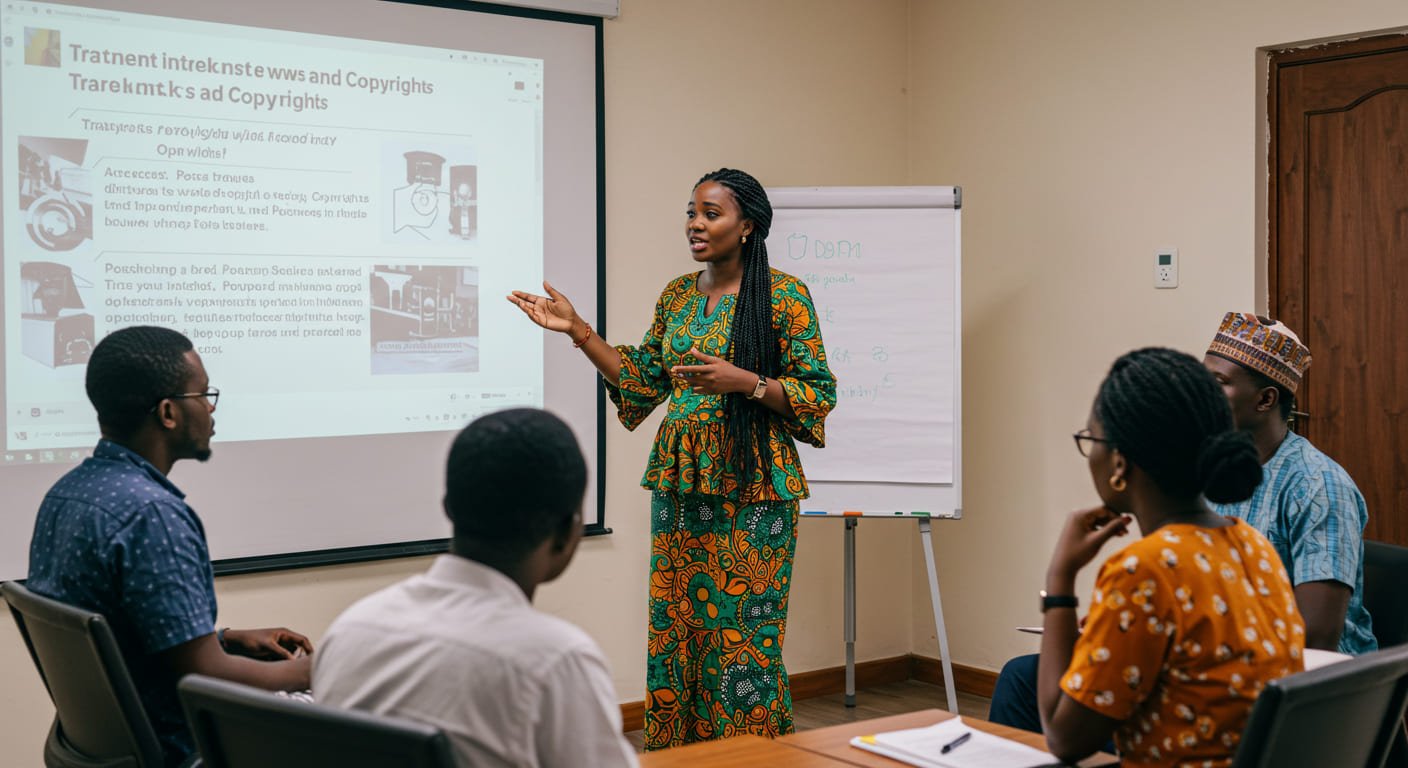Establishing a Non-Governmental Organization (NGO) in Nigeria is a commendable step towards driving positive social change. These entities, registered as “Incorporated Trustees” under Part F of the Companies and Allied Matters Act (CAMA) 2020, are pivotal in addressing societal challenges through initiatives in education, health, environment, and more.
The Corporate Affairs Commission (CAC) oversees the formation, regulation, and dissolution of NGOs, as stipulated in Sections 825 to 829 of CAMA 2020. These bodies are usually registered for objectives such as charity, education, sport, religion, and science.
While NGO registration may not be mandatory for all activities, it confers legal recognition, enabling the NGO to:
- Operate formally
- Access funding opportunities
- Enter into binding contracts
Whether you’re establishing a new initiative or formalizing an existing one, understanding each phase — from name reservation to post-registration compliance — is crucial.
This article provides a step-by-step guide to help social impact entrepreneurs navigate the NGO registration process in Nigeria. By the end of this guide, you’ll be equipped with the knowledge to successfully register your NGO and ensure it stands on a solid legal foundation to make a meaningful impact in your community.
Table of contents
- Detailed Procedure for NGO Registration in Nigeria (Step-by-Step)
- Providing Relevant Information — The First Crucial Step
- Availability Search, Name Reservation and Consent Stage — Securing Your NGO’s Identity
- Publication of Newspaper — Informing the Public and Allowing Objections
- Formal Application — Submitting Your NGO Registration Documents to CAC
- Approval and Certificate — Official Recognition of Your NGO
- Conclusion
- Frequently Asked Questions (FAQs) — About NGO Registration in Nigeria
- Why Choose Tcorporate?
- Contact Us Today
What Is an NGO in Nigeria?
A Non-Governmental Organization (NGO) in Nigeria refers to a voluntary, non-profit entity established to serve public interests or promote social causes. NGOs operate independently of government influence, focusing on areas such as education, health, humanitarian aid, the environment, advocacy, and community development.
Under Nigerian law, NGOs are legally recognized as “Incorporated Trustees” according to Part F of the Companies and Allied Matters Act (CAMA) 2020. This status gives NGOs the capacity to enter into contracts, own property, and sue or be sued in their own names.
The role of NGOs is vital in bridging gaps where government intervention might be limited, driving grassroots and systemic change across the country.
SEE ALSO: How to Register a Pharmaceutical Company in Nigeria | Requirements & Licensing
Is It Compulsory to Register an NGO in Nigeria?
Understanding the Legal Requirements and Benefits of Registering Your NGO for Formal Recognition and Compliance
While informal groups and community associations can exist without formal registration, it is compulsory to register your NGO if you intend to operate as a legally recognized entity in Nigeria. Registration with the Corporate Affairs Commission (CAC) confers legal personality, which enables the NGO to open bank accounts, enter contracts, receive grants and donations, and protect its name from misuse.
Moreover, registration increases credibility with donors, partners, and government agencies. Unregistered NGOs lack these privileges, which may hinder their operations and expose them to legal vulnerabilities. Therefore, for any NGO seeking to have a sustainable and recognized presence, registration is essential.
Detailed Procedure for NGO Registration in Nigeria (Step-by-Step)
Providing Relevant Information — The First Crucial Step
The first stage is to provide all relevant information about the proposed NGO. These include:
- The proposed names of the NGO
- The aims and objectives of the NGO
- Personal details (name, home address, phone number, and email address) of the Chairman, Secretary, and other Trustees
Availability Search, Name Reservation and Consent Stage — Securing Your NGO’s Identity
At this stage:
- The solicitor/agent conducts a name availability search
- If the names are available, you prepare an application for consent, imputing all the information of the trustees pending the consent of the Registrar General of the CAC
- The aims and objectives of the NGO are also submitted during this application for consent
Publication of Newspaper — Informing the Public and Allowing Objections
Once the consent has been granted and the name is approved:
- A publication must be made in two daily newspapers circulating in the area where the association is to be situated
- This informs the public that certain trustees seek to register the proposed NGO with set aims and objectives
- The public is invited to object if they have valid reasons
- Any opposition must be submitted to the Commission within 28 days from the date of publication
Formal Application — Submitting Your NGO Registration Documents to CAC
After the 28-day publication period:
- The solicitor proceeds to make a formal application to the CAC
- Required documents at this stage include:
• Minutes of meeting
• Copies of newspaper publications
• Trustee declaration forms
• Means of identification of trustees
• Passport photographs
READ ALSO: How to Set up a Courier and Logistics Business in Nigeria | Full Guide in 2025
Approval and Certificate — Official Recognition of Your NGO
If:
- No objection is received within the specified period, or
- An objection is received but rejected by the Commission, and
- All necessary documents are correctly uploaded
Then the CAC may approve the application, register the trustees, and issue the certificate of registration.
How Long Does It Take to Register an NGO in Nigeria?
The NGO registration process in Nigeria typically takes between 6 to 8 weeks from the date of submitting a complete application.
The duration depends on various factors, including the thoroughness of the documentation submitted, the speed of the name approval and consent process, the 28-day public notice period for objections, and the internal processing time at the CAC.
Delays often arise from incomplete documentation, objections raised during the publication period, or administrative backlogs. Applicants are advised to engage the services of competent legal practitioners or agents to ensure compliance and expedite the process.
What Documents Are Required to Register an NGO in Nigeria?
Registering an NGO in Nigeria requires several key documents to demonstrate compliance with statutory requirements. These include:
- Names and personal details of trustees, supported by valid means of identification (e.g., national ID, passport) and passport-sized photographs.
- Minutes of the meeting where the trustees resolve to register the NGO and approve the application.
- Trustee declaration forms affirming the trustees’ consent to act in that capacity.
- Constitution or governing document outlining the objectives, governance structure, and operational rules of the NGO.
- Newspaper publication copies showing the public notice of the proposed NGO’s registration.
Submitting accurate and complete documents is critical to avoid rejection or delay.
How Much Does It Cost to Register an NGO in Nigeria?
The cost of registering an NGO in Nigeria varies depending on multiple factors such as CAC filing fees, newspaper publication charges, and professional fees if legal services are engaged.
Typically, registration fees range from ₦150,000 to ₦300,000 or more. This includes government levies for name reservation, registration, and certificate issuance, as well as costs for publishing public notices in two national newspapers over a 28-day period. Legal fees for solicitors or corporate service providers vary based on their scope of service and experience. It is advisable to budget adequately to cover all these expenses upfront to avoid procedural interruptions.
Can a Foreigner Be a Trustee of an NGO in Nigeria?
Yes, a foreign national can be appointed as a trustee of an NGO registered in Nigeria. However, they must satisfy certain conditions stipulated by the CAC, including the presentation of valid identification documents, such as a passport, and evidence of their residency status within Nigeria.
Typically, foreign trustees are required to obtain a Certificate of Exemption from Residency and Proceeding Abroad for Company (CERPAC). This ensures they comply with Nigerian corporate governance and legal frameworks while actively participating in the NGO’s governance. Inclusion of foreign trustees is common in NGOs with international partnerships and funding.
Is NGO Registration in Nigeria the Same as Registering a Foundation?
In Nigeria, the term “NGO” is broad and encompasses various forms, such as foundations, charities, faith-based organizations, and other non-profit entities. Legally, these entities are all registered under the same framework as Incorporated Trustees under Part F of CAMA 2020. Therefore, NGO registration and foundation registration follow the same procedural and legal requirements.
The difference lies primarily in the organization’s objectives and operational scope rather than its legal status. Whether you are registering a charity, foundation, or faith-based NGO, the process, documentation, and regulatory oversight are consistent under the CAC’s mandate.
Can an NGO Be Converted to a Company in Nigeria?
No, an NGO cannot be directly converted into a company in Nigeria. NGOs are established as non-profit entities designed to serve public or social causes without the intention of profit distribution. Conversely, companies registered under the Companies and Allied Matters Act (CAMA) are for-profit commercial entities.
If an NGO wishes to operate a for-profit arm, it must register a separate company for that purpose. Any transformation of the NGO’s structure requires winding up the NGO and forming a new company, as direct conversion between these two legal forms is not permitted under Nigerian law.
Conclusion
The procedure for registering an NGO in Nigeria may appear complex, but it is entirely achievable:
- Submit all relevant information to your solicitor
- Conduct a name reservation
- Publish the approved name in two national newspapers
- After 28 days, submit the formal application
- Upon CAC approval, you will receive a certificate of incorporation
By following these steps, your NGO will be fully registered and positioned to make a meaningful impact.
Frequently Asked Questions (FAQs) — About NGO Registration in Nigeria
An NGO (Non-Governmental Organization) in Nigeria is a non-profit, non-political, and voluntary group formed to promote public interest or serve a social cause such as education, health, environment, or humanitarian services. Legally, NGOs are registered as Incorporated Trustees under Part F of the Companies and Allied Matters Act (CAMA) 2020.
To register an NGO in Nigeria, you have to follow these steps:
Provide relevant details of your proposed NGO and trustees
Reserve the name with the Corporate Affairs Commission (CAC)
Publish a public notice in two national newspapers
Submit a formal application with supporting documents to the CAC
Await CAC approval and issuance of the certificate of incorporation
The registration process typically takes 6 to 8 weeks, depending on the availability of documents, name approval, newspaper publication period (28 days), and processing time by the CAC.
The key documents include:
Names and details of trustees (ID, passport photos)
Minutes of meeting approving registration
Newspaper publications
Trustee declaration forms
Constitution or governing document of the NGO
The cost of NGO registration in Nigeria ranges from ₦150,000 to ₦300,000 or more depending on legal fees, CAC filing fees, newspaper publication costs, and the professional you engage.
Yes, a foreign national can be a trustee of an NGO in Nigeria. However, they must meet the CAC’s requirements, including valid identification. They must be resident in Nigeria and would need to obtain CERPAC.
Yes, once registered, an NGO can open a corporate bank account in its name using the Certificate of Incorporation, TIN, and board resolution authorizing the account opening.
Registered NGOs are generally exempt from paying income tax, provided their activities are strictly non-profit and they do not engage in commercial ventures. If they engage in any activity that isn’t non-profit, they have to pay tax on that. However, NGOs are still required to file annual returns with the CAC and may be liable for other statutory obligations like VAT on purchases or withholding tax.
In Nigeria, “NGO” is a general term, while “Incorporated Trustees” refers to the legal structure under which NGOs are categorized in CAMA. They refer to the same thing.
While informal community groups can exist without registration, registering your NGO is mandatory if you want legal recognition, access to donor funding, ability to open a bank account, sign contracts, and protect your organization’s name.
Yes. Foundations, charities, and faith-based organizations are all types of NGOs. They are registered as Incorporated Trustees under Part F of CAMA 2020.
No, it cannot. An NGO is a non-profit, while a company is for-profit. You would need to register a company and a nonprofit arm.
The name must not be identical or confusingly similar to an existing organization. The name must not be vague — it must be qualified properly. A name availability search at CAC is the first step.
Why Choose Tcorporate?
Setting up a non-governmental organization in Nigeria requires expertise to navigate the legal and regulatory landscape. With years of experience in corporate law and compliance, Tcorporate Legal Advisory makes the process seamless — allowing you to focus on your mission and social impact goals.
Contact Us Today
Ready to file your annual returns or register your NGO? Let us handle the complexities while you reap the benefits of a compliant organization.
📞 Phone: 0908 011 9980, 0908 011 9975, 0810 347 2195
📧 Email: info@tcorporatelegaladvisory.com
🌐 Website: www.tcorporatelegaladvisory.com
Let Tcorporate guide you every step of the way.
Your social impact growth begins here!





